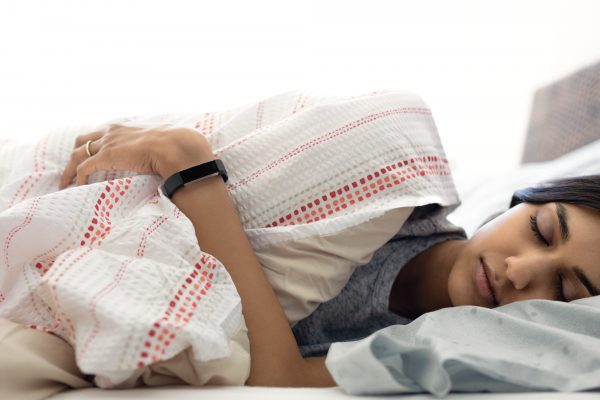
Could wearable devices track flu outbreaks? A new study conducted by researchers with the Scripps Research Translational Institute suggests it could be a reality in the near future. Researchers tested if Fitbit data could be used to better predict flu outbreaks at the state level.
The study, funded in part by the National Institutes of Health, was published in the Lancet Digital Health on Wednesday. The idea is that when sick, people’s resting heart rate, sleep patterns and daily activities change. By tracking these metrics, researchers hope to get ahead of flu outbreaks.

NEMT Partner Guide: Why Payers and Providers Should Choose MediDrive’s TMS
Alan Murray on improving access for medical transportation.
“When people get an infection, their resting heart rate tends to increase and their daily activities will change, as will sleep patterns,” Jennifer Radin, an epidemiologist at Scripps and study’s lead author, said in a news release. “By leveraging wearable technology that a large share of our population is already using, public health officials may be able to identify influenza-like illness rates faster and more precisely than what is currently possible.”
Traditional flu surveying involves tracking the number of patients reporting flu-like symptoms and flu-associated hospitalizations. It often falls a few weeks behind the actual outbreak.
Other digital tools, such as Google searches and Twitter, have been used in attempts to track flu outbreaks in real time. But these methods can overestimate flu activity, as it’s difficult to distinguish between someone searching about their own illness or merely out of increased interest.
Researchers analyzed de-identified data from Fitbit devices from 200,000 people across the U.S. between 2016 and 2018. Of that group, they narrowed the data to more than 47,000 people from California, Texas, New York, Illinois and Pennsylvania who wore their devices consistently during that period.
They found that “abnormal” Fitbit data in resting heart rate and sleep measures was correlated with the number of patients reporting influenza-like illness, in most cases. Across the five states, Fitbit data significantly improved flu predictions.
“This information could be vital to enact timely outbreak response measures to prevent further transmission of influenza cases during outbreaks,” researchers wrote in the report.
The study had some limitations; wrist-based heart monitors are less accurate than chest straps and other types of devices, though they generally perform well at detecting resting heart rate. Wearables also have well-documented struggles in accurate sleep tracking. Researchers were also limited to two years of Fitbit data, meaning they were only able to evaluate its performance over one flu season.
In the future, with more data, researchers said they might be able to use this method to predict infectious disease at the county or city level.
“With access to 24/7 real-time data from these devices, I can envision a time when it may be possible to identify illness rates on a daily basis rather than weekly, providing even more timely surveillance,” Radin said in a news release.
Cécile Viboud, of the NIH’s Fogarty International Center, wrote in a linked editorial that the study “…is a promising first step towards integrating wearable measurements in predictive models of infectious diseases.”
We anticipate that the large amount of real-time data generated by Fitbit and other personal devices will prove highly useful for public health and augment traditional surveillance systems,” she added.
Photo credit: Fitbit








